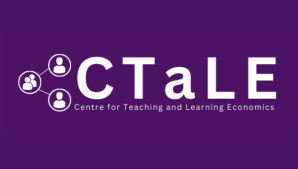
Author: June Hong
BSc Economics Y1
TeachECONference2021 Student Partner
COVID-19 has undoubtedly affected everyone. It has changed the way we work and interact with other people, and education is certainly one of the sectors that went through the most radical changes. The first panel of TeachECONference2021 explored the experiences of educators during COVID. As an Economics student who spent the entirety of first year learning remotely, there were three main takeaways that I could relate with.
Need for change led to openness to change
Before the pandemic, Gail Hoyt of the University of Kentucky was opposed to online education, as the energy of face-to-face education could not be replicated. But COVID suddenly made it the only option. When Gail unwillingly switched to online education, she soon realized many of its advantages. Firstly, it made learning more accessible. I can wholly agree with this; the fact that lectures were recorded meant I could always look back at material I missed or was unclear about. Secondly, the synchronous online sessions allowed for what Gail calls ‘intellectual intimacy’. I certainly benefitted from the increased interaction between students during lectures through chat, exchanging information and clarifying confusing points. After observing the positives of making such change, Gail adapted a true growth mindset and is more willing to try new styles of teaching. She says she has never felt so compelled to make the coming fall semester different to anything done before.
Derek Bruff of Vanderbilt University shared similar insights. He says COVID led to ten years of professional development and culture change in a mere 4 months. While developing an online course design institute, Derek surveyed alumni last December and found that 85% agreed that students can learn effectively online, which he believes would have been lower before the pandemic. This seems to indicate that educators are recognizing that there are different ways for students to actively participate in learning.
Institutes have become more empathetic and flexible
Jennifer Imazeki of San Diego State University points out that COVID has had a disproportionate effect on everyone. Indeed, we have seen minority ethnic groups, economically disadvantaged people, etc. further marginalized by this pandemic. Jennifer says that, in response, universities have attempted to become more empathetic towards students and have become more flexible. This can be clearly observed at UCL; a no-detriment policy was introduced, making all exams available for 24 hours, lowering grade boundaries, and making it easier to claim extenuating circumstances. I personally know many friends who were negatively impacted by COVID and benefitted greatly from claiming an extenuating circumstance. Jennifer predicts that mental health will become a very important factor institutes should care about. She adds that universities should not lose the empathy and flexibility embraced during COVID.
Your Professor is a human, too
Joshua Eyler of the University of Mississippi added that the need for empathy is just as true for faculty as well, who are often left out of the conversation. He states that his institution initially took a utilitarian approach but it soon became clear this could not address the range of emotional responses during the pandemic. These needed to be dealt with, and Joshua agreed with Jennifer that we continue addressing emotional components. He emphasized that faculty are burnt out. COVID forced them to adapt to completely new ways of teaching, deal with problems like technical issues which they did not have to before, and had to deal with more stress than ever. I can recall seeing our course forums getting flooded whenever there was minor vagueness in an assessment, with many students visibly irritated. The small number of lecturers had to make quick decisions and answer all those questions in a very short period of time. It goes without saying that faculty has had a very tough time this year. It is easy to forget our professors and lecturers are human just like us. We should recognize their tremendous efforts to improve our experiences, demonstrated in this very conference, and more should be done to support them just as universities support students.
More TeachECONference2021 Reflections:
- Giving yourself your own grade, expressing your emotions to your professor, and experimenting with data: Inspiring ideas for economics education
- Lessons Learned from Teaching in a Pandemic
- Economists write differently. The uniqueness of economic writing and how to teach it
- Helping Students Succeed in Economics
- Best Practices and New Ideas for Teaching Econometrics

5 thoughts on “COVID and education: What educators have to say, and a student perspective”